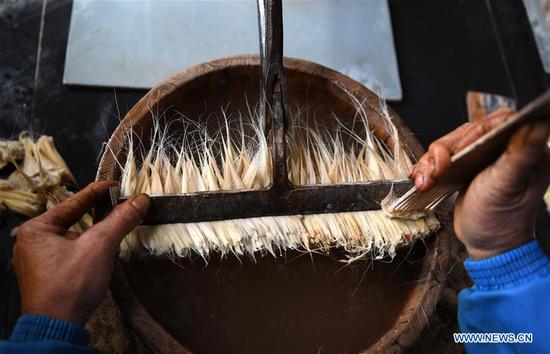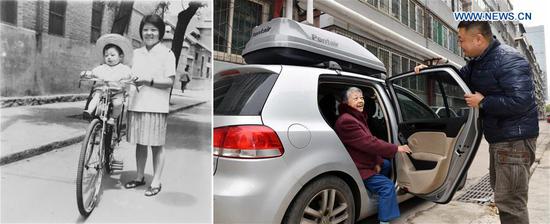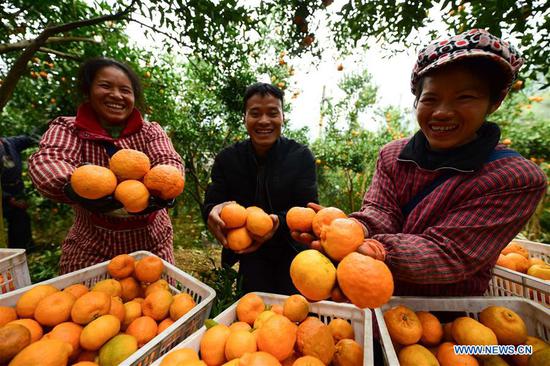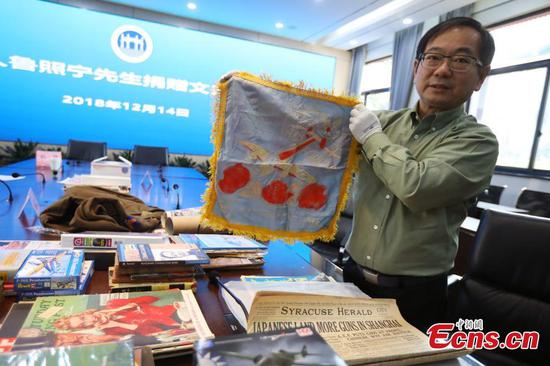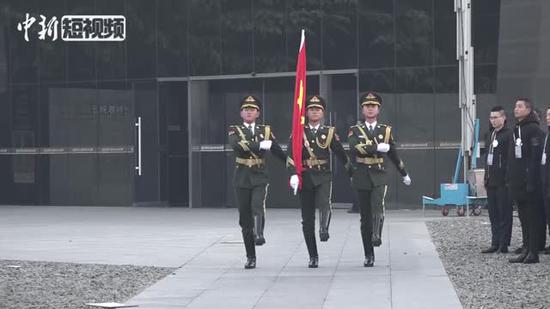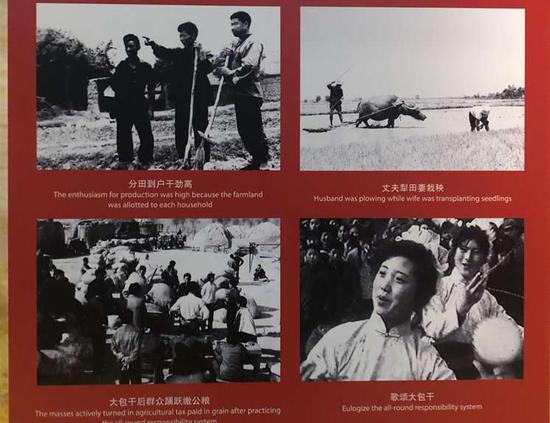
Old pictures exhibited in Xiaogang Village. /CGTN Photo
Xiaogang Village is known as the birthplace of China's rural reforms. In 1978, eighteen farmers signed a secret agreement to divide communally-owned farmland into individual pieces called household contracts. Grain production then sky-rocketed, and after forty years of reform and opening-up, the village has seen a considerable transformation.
Xiaogang Village in Fengyang County, east China's Anhui Province, was the first village in the country to implement a household responsibility system, under which land was leased to families in return for the delivery of fixed output quotas. In 1978, the total amount of grain production in the village was only around 148,000 tons. But after decades of rural reform, the total amount reached nearly 750,000 tons in 2017, around five times more than 40 years ago.
The pioneers of the household responsibility system say that the primary purpose of the rural reform is to increase the added value of land, through land transfer and distribution.
"We transferred our land to enterprises at 800 yuan per mu. Our farmers' incomes did not decrease, and we could liberate our labor force to do other things. For example, in my case, I can spend more time opening a restaurant, or crafting local specialties. I can even work in an enterprise to earn a wage. We took all these measures to increase farmers' incomes," said Yan Jinchang, one of the pioneers of the Household Responsibility System.
Officials say that to enhance the development levels of modern agriculture in Xiaogang, China's Ministry of Science and Technology has approved the establishment of a new modern agricultural science and technology park.
"This project has just been approved, and it's about to be implemented. After the implementation of this project, the current technical level of grain and agricultural production, as well as the technical level of agricultural processing, will be greatly improved. We will use new technology, materials, and products to promote prosperity," said Xu Guangyou, the party secretary of Fengyang County.
Xu believes Xiaogang Village is not only limited to agriculture development but can also be reinforced in many other aspects.
"In the past, we only engaged in agriculture. But now, we can also develop tourism, sales, and push Xiaogang Village to open to the world through an online presence," said Xu.
And in terms of future rural reforms, Yan said the key to agriculture is the new mechanisms.
"Only new mechanisms can help reduce the burden on farmers and increase their incomes. Therefore, we must continue to deepen reforms. The great reform leads to great development, and small reform leads to small development. It's difficult to achieve development without reform," said Yan.
Forty years on, and just like Yan believes, rural reforms are bound to continue.





































